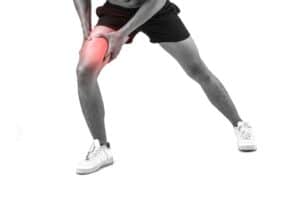If you’re looking for a quick and effective way to tackle constipation, then look no further than supplements. Supplements are a safe, natural way to keep your digestive system moving smoothly and can help boost your metabolism and energy levels at the same time. However, there are certain types of supplements that can cause constipation.
Supplements containing iron, calcium, or magnesium all have the potential to cause constipation if taken in high doses or over time. Iron supplementation is especially problematic as it causes constipation by interfering with the absorption of other nutrients in food including vitamin B12 and folate. As such, it’s important to take iron supplements only under the guidance of a doctor or health professional who can monitor your intake and make sure that you’re not taking too much at any given time.
Calcium supplements should also be carefully monitored because they can cause constipation when taken in high doses over long periods of time (more than 2 years). Calcium is an essential nutrient for bone health but not enough is absorbed from our diets alone so many people turn to calcium supplements as an easy fix for this issue.
Why do some supplements cause constipation?
There are a few different reasons why some supplements can cause constipation. It could be how much you’re taking that’s causing the problem. If you take too much of a supplement or over-consume them, it can increase your risk of developing constipation.
If you have a pre-existing medical condition that causes constipation, then taking certain supplements could make it worse. For example: if you have constipation because you have irritable bowel syndrome (IBS), then taking magnesium may cause further issues with IBS symptoms like bloating or abdominal pain and discomfort.
Inhibiting the breakdown of sugars and starches can cause constipation because these compounds are not absorbed well by the body and need to be broken down before they can be used as fuel. These supplements also affect how much water your body absorbs from food since water is needed to digest carbohydrates. Supplements that inhibit water absorption will also lead to constipation.
Inhibiting types of bacteria in the gut is another way some supplements can cause constipation. Some supplements contain prebiotics, which promotes certain types of bacteria over others. If you have a lot of “bad” bacteria in your stomach (such as E-coli), then adding a supplement with prebiotics could help you get rid of them by crowding out those life forms with ones that are more beneficial for digestion (like lactobacillus).
Which types of supplements cause constipation?
Iron supplements
It is another common cause of constipation. It is an essential mineral that helps the body make red blood cells, which carry oxygen throughout the body.
They are often used to treat iron deficiency anemia, a condition in which you don’t have enough red blood cells and may feel tired or weak. Iron deficiency anemia can be caused by excessive menstrual bleeding (for women) or heavy periods (for men). It also can result from chronic bleeding in the stomach or intestines, as well as inadequate absorption of nutrients from food.
If you’re taking iron supplements for any reason other than treating anemia and have developed severe constipation after taking them, contact your doctor immediately because your risk of developing more serious side effects increases the longer you take them.
Also Read: Why Do Iron Supplements Cause Constipation?
Calcium supplements
Calcium supplements can cause constipation, but only if you take too much. If calcium is taken with other supplements it can help with constipation.
For example, calcium can be taken as part of a multivitamin for osteoporosis medication, which contains other nutrients (like vitamins A and D). And for individuals who have trouble getting enough calcium in their diet, taking supplemental calcium may help prevent or treat constipation by increasing fluid intake and promoting bowel movements.
Calcium is a mineral that is essential for good health. It plays a key role in building and maintaining strong bones, as well as nerve function and blood clotting. Most people get enough calcium from their diet, but some individuals may not consume enough calcium-rich foods to meet their daily needs.
Vitamin C supplements
Vitamin C is a water-soluble vitamin that plays an important role in helping the body form collagen, an important protein in connective tissue. It also helps the body absorb iron, which helps form red blood cells that transport oxygen throughout your body.
Vitamin C supplements can be found in tablet or capsule form and are commonly used to boost immunity during cold and flu season, prevent cancer and heart disease and improve overall health.
However this good news doesn’t mean you should go overboard on supplementing with Vitamin C, too much of it can cause diarrhea or excess flatulence (gas).
When you take a large dose of vitamin C, it can be released from the body as carbon dioxide. This can result in belching or flatulence. But don’t worry, this usually only happens when people consume more than 2,000 mg of vitamin C at one time. If you have frequent gas after taking your supplements, try reducing your intake.
Which supplements relieve constipation?
There are a number of supplements that can help relieve constipation. These include probiotics, fiber, and magnesium. Probiotics are healthy bacteria that help maintain the balance of bacteria in your intestines.
Fiber is found in many foods such as whole grains, legumes, and some fruits and vegetables.
Magnesium is another important supplement for relieving constipation because it helps to relax the muscles in your digestive tract.
If you want to use a supplement for constipation relief, choose one that contains both fiber and magnesium. You can also try taking probiotics with your fiber to help relieve constipation symptoms. Do not take high doses of any supplement without consulting your doctor first because they can cause side effects in some people.
You can also try a natural remedy for constipation relief. One of the most popular is aloe vera juice. Aloe vera juice is a safe and effective way to soothe your digestive system, which helps relieve constipation symptoms. You can make your own at home by blending one small piece of aloe vera gel with water or juice and drinking it down.
What Causes Constipation?
There are many factors that can cause constipation. Some common causes include:
Dietary changes:
People who eat a low-fiber diet are more likely to have problems with constipation than those who consume more fiber. Fiber helps move stool through the digestive tract.
Medications: Some prescription medications and over-the-counter drugs may cause constipation. For example, some antidepressants may cause constipation, as can iron supplements and antacids.
Underlying conditions:
Conditions that affect how your body absorbs or uses food may cause constipation, including celiac disease, diabetes, and hypothyroidism. Other conditions that can lead to constipation include Parkinson’s disease, Alzheimer’s disease, and multiple sclerosis (MS).
Conclusion
We hope this article has helped clarify which types of supplements can cause constipation. While there are several options available, we recommend talking to your doctor before taking any new supplement or medication.











